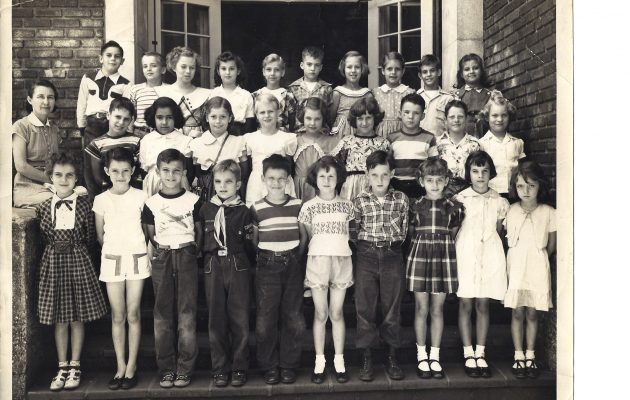The Way We Were: Joyce Thomas Jones — Part I

By Laura Jane Pittman
Once upon a time, there was an area of Jacksonville called Southside. Now, dear reader, this is not the same Southside we think of today. It was located in the area of South Main Street and what was then Miami Road — in the vicinity of today’s bb’s and Reddi Arts. Back then, the area was a land of barbershops, boarding houses, old-fashioned drugstores, hardware stores, and pool halls. The greater area was called the city of South Jacksonville — a community later renamed San Marco.
In the midst of this Southside lived a little girl named Joyce Thomas (now Jones). Jones went on to become a career educator who recently retired from University of North Florida in 2007, after several decades there. But her early years in Jacksonville are full of unique memories of a town gone by. So many, in fact, that they merit two columns. Read on to hear about Jones’ very early years, and next month, we will finish her story.
Jones was born at St. Luke’s Hospital in 1943, right in the middle of World War II. Her parents had moved from Georgia to Jacksonville for a job opportunity at Gibbs’ Shipyard, and her family lived off Belmont Terrace.
“My daddy was a defense worker, and he worked as a welder. My maternal grandmother first worked at a glass factory which was where Assumption is located now. Then she had a boarding house on Mary Street, and she would house workers during the week from as ‘far away’ as Live Oak,” Jones remembered with a smile. “She would feed them breakfast, pack them a lunch, and feed them dinner. They stayed two to a room, and she had about five or six men at a time.”
Her mother, said Jones, was almost a “Rosie the Riveter.” But the war ended before she ever got the chance to do the work for which she trained.
“When there was a shortage of welders during the war, Daddy taught a night class to a group of women. Momma decided to go because she didn’t like the thought of him doing that without her,” shared Jones. “She got her diploma, but then I got sick. And then the war ended, so she never got a chance to actually do the welding. Daddy said she was actually good at it!”
Jones has a vivid memory of her mother bringing home a big box of about 500 pieces of bubble gum – a scarcity during the war and something Jones had never seen – to celebrate the war’s end. Jones, her sister Jean, and their cousins chewed it all in about a week and had to have plenty of wads cut out of their hair.
Since he was no longer needed as a welder, her father got a sales job, and her mother took a job at Service Drugs — an operation located next door to current day bb’s.
“Service Drugs had rows of twirly seats, racks of comic books, and a big Wurlitzer juke box. In the summer when we were out of school, our grandmother from Savannah would come care for us,” recalled Jones. “In the Southside area at the time was a City Hall building that housed a couple of jail cells [think Andy Griffith]. On our way to the park to play, which was in a field where the San Marco Library is located, we would peek through the windows and see ‘sad-looking men’ inside sitting in the cells.”
Jones remembers a pet store nearby, with a Kaputian monkey and his own little rocking chair, bed, and swing in the window. There was also a pool hall, where they sold illegal bolita game tickets on Friday nights and listened to the drawing on Saturday on the radio, and a Setzer’s Grocery.
The Treaty Oak was another place the children and their cousins liked to play. It was surrounded by houses at the time, and the children had heard a “theory” that it was called the Treaty Oak because Ponce de Leon or DeSoto had signed a treaty with the Indians there.
When Jones was five years old, the family moved to Nira Street.
Part II of Jones’ reminisces will be shared in the August issue of The San Marco Resident.
Know a neighborhood resident who has a rich history in the area? Have an idea of someone who can share stories of the neighborhood’s past? We’re always looking for potential subjects for our popular The Way We Were column. Please send any suggestions to [email protected].






